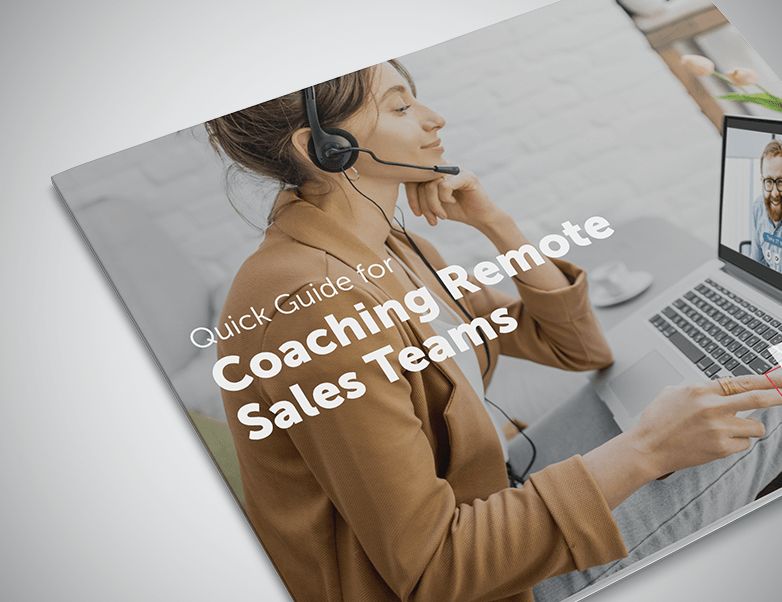Remote Sales Coaching: Quick Tips, Tools and Best Practices

In need of a new remote sales coaching strategy? The following is an excerpt from our new eBook: Quick Guide for Coaching Remote Sales Teams. Download the eBook to get the full story, or schedule a short demo for an up-close look at how Brainshark can help!
____________________
There’s no question that coaching is a major driver of sales performance. According to a recent report from CSO Insights: “For the last five years, sales coaching has had the greatest impact on win rates and quota attainment.”
But today, there are questions about how to design and deliver coaching effectively. With pre-pandemic norms rapidly upended, what worked months ago often no longer applies – and many organizations are reimagining their coaching programs for a remote-work reality.
Here we’ll provide tips for remote sales coaching, so you can maximize the benefits of your coaching program – regardless of where reps and their managers are working.
Remote Sales Coaching Tip #1: Plan for What You Can See
Today, with buyer and seller needs (and circumstances) in near-constant flux, coaching programs can’t be inflexibly tied to a long-term plan. Instead, it’s important for sales enablement teams to be agile and adaptable: developing shorter-term coaching plans that map to current corporate goals, priorities and realities.
Aim to review and assess your remote sales coaching program monthly, with sales enablement sharing plans and upcoming activities with sales managers, sales leaders and corporate leadership – soliciting their input and feedback.
Key components to successful planning include:
- Clear and agreed-upon goals, along with a way to measure them – ideally tying metrics to leading indicators of revenue (pipeline, opportunities created, etc.)
- Strong, frequent communication and collaboration among sales enablement, sales managers and sales leadership.
For example, sales enablement should have a running dialog with sales managers and leaders – asking questions like: “What trends and challenges are you seeing among reps?” and “What’s the most important thing we can work on and reinforce with your team?” Common and pressing answers then get reflected in coaching plans and activities.
- More topical and situational coaching, geared toward today’s times. Depending on your organizational needs, your remote sales coaching strategy might reinforce how to take an empathetic approach in buyer conversations, use new technologies effectively, and connect productively with customers in a virtual setting.
- Role-specific coaching. Coaching should not be one-size-fits-all but, rather, tailored to reps’ needs, skills and roles. For a new product launch, for instance, business development reps (BDRs), front-line sellers, account managers and sales engineers all have different responsibilities. To support a successful launch, coaching and enablement programs should be customized to those roles.
- Manager commitment and prioritization. The best coaching plans, activities and infrastructure can’t drive results if no one implements them. So the active and enthusiastic participation of sales managers and coaches is integral to success. In the planning process and beyond, managers must commit to making time for coaching, and leadership should help them make this a priority.
Want more remote sales coaching tips and ideas? Download the full eBook: Quick Guide for Coaching Remote Sales Teams.
Ready to elevate your remote coaching now? Schedule a Brainshark demo today!

